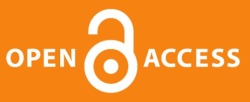Financial education as a basic mechanism for promoting financial inclusion in Arab countries
Abstract
In order to achieve the goals of sustainable development, address poverty and integrate the informal economy, the countries of the world are currently seeking to involve society segments of society, especially the poor and the disadvantaged in the economy and financial system, and this through circulating financial services to different members of society according to their needs and requirements fairly and transparently, embodying financial inclusion, and aiming This study indicates the relationship between financial inclusion and financial culture, especially in the Arab countries, where an understanding of banking products and services is a prerequisite for generalization, good use, and effective use of them. Likewise, having an account A banker acts as a catalyst for a better understanding of financial concepts and principles. Usually low levels of financial inclusion are associated with a low level of financial culture. Therefore, financial education has become a necessity to facilitate access to financial products and services and encourage their use. Therefore, this study has been identified in various basic concepts of financial inclusion and financial culture In addition to knowing the reality of financial inclusion in Arab countries and their levels and the role of financial education in promoting financial inclusion in Arab countries.
References
2. أحمد سرور، منى حجازي (2017)، تزايد الدور...كيف لمصر أن تحقق الشمول المالي؟. على الخط: https://elbdil-pss.org/autgor/ahmed-mona///12/11/2017. (تاريخ الزيارة 08/09/2019).
3. اتحاد المصارف العربية، واقع الشمول المالي في العالم العربي، الدراسات والأبحاث والتقارير، العدد 427، على الخط: https://uabonline.org/ar/ .
4. مركز المشروعات الدولية الخاصة (2017)، سلسلة التحول نحو اقتصاد غير نقدي، واشنطن: مركز المشروعات الدولية الخاصة، غرفة التجارة الأمريكية، ص06.
5.صورية شنبي و السعيد بن لخضر، أهمية الشمول المالي في تحقيق التنمية، مجلة البحوث في العلوم المالية والمحاسبة، المجلد 3 - العدد2 (2018) ص 104-129.
6. فريق العمل الإقليمي لتعزيز الشمول المالي في الدول العربية، ص03.
7.بنك الجزائر (2017)، الشمول المالي، ص 01.
8. ماجد محمود محمد أبوديه (2016)، دور الانتشار المصرفي والاشتمال المالي في النشاط الاقتصادي الفلسطيني، فلسطين: رسالة ماجستير جامعة الأزهر، غزة -فلسطين، ص 33.
9. Kozup and Hogarth(2008),what is the goal of financial education.p 12.
10. Lusardi A, and Tufano, P (2015), “Debt Literacy, Financial Experiences, and Over Indebtedness,” Journal of Pension Economics and Finance, Vol. 14, special issue 4, pp. 332-328.
11. Margarida A. and Mendes V (2010), “Financial Literacy and Portfolio Diversification,” Quantitative Finance, Vol. 10(5), pp. 515-528.
12. Klapper, L. et al. (2015). “Financial Literacy Around The World: Insights from the Standard & Poor’s Ratings Services Global Financial Literacy Survey”.
http://gflec.org/wp-content/uploads/2015/11/Finlit_paper_16_F2_singles.pdf.
13. Attia, H. & Engelhardt, H. (2016). “Financial Education Initiatives in the Arab Region: A stocktaking report”. Arab Monetary Fund (AMF) and the Deutsche Gesellschaft für Internationale Zusammenarbeit (GIZ).



